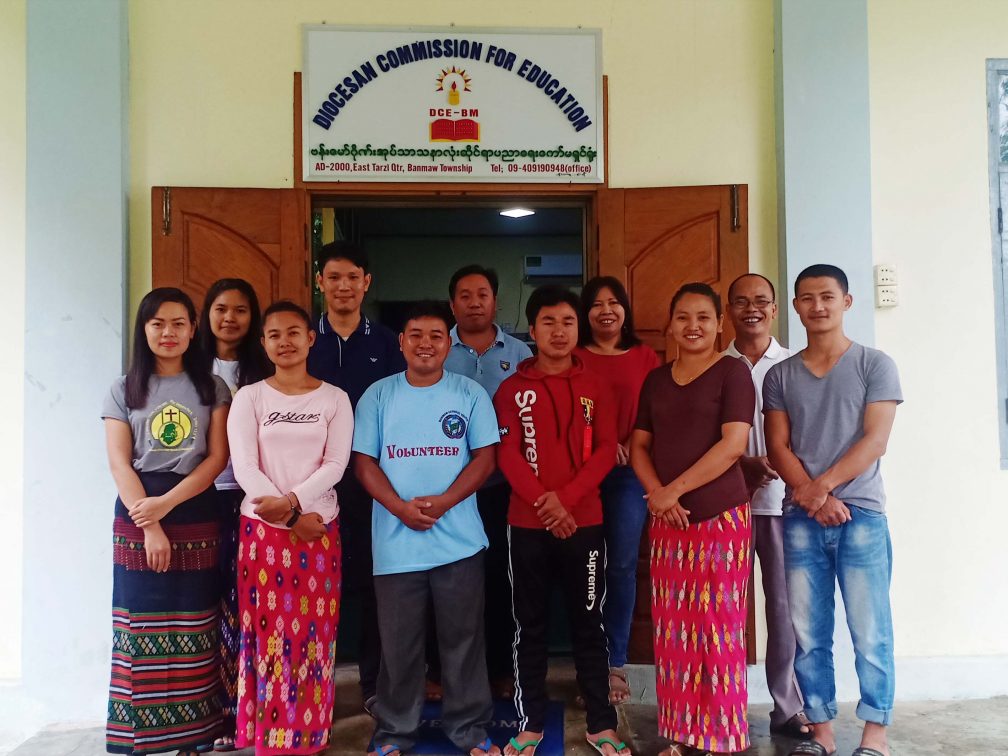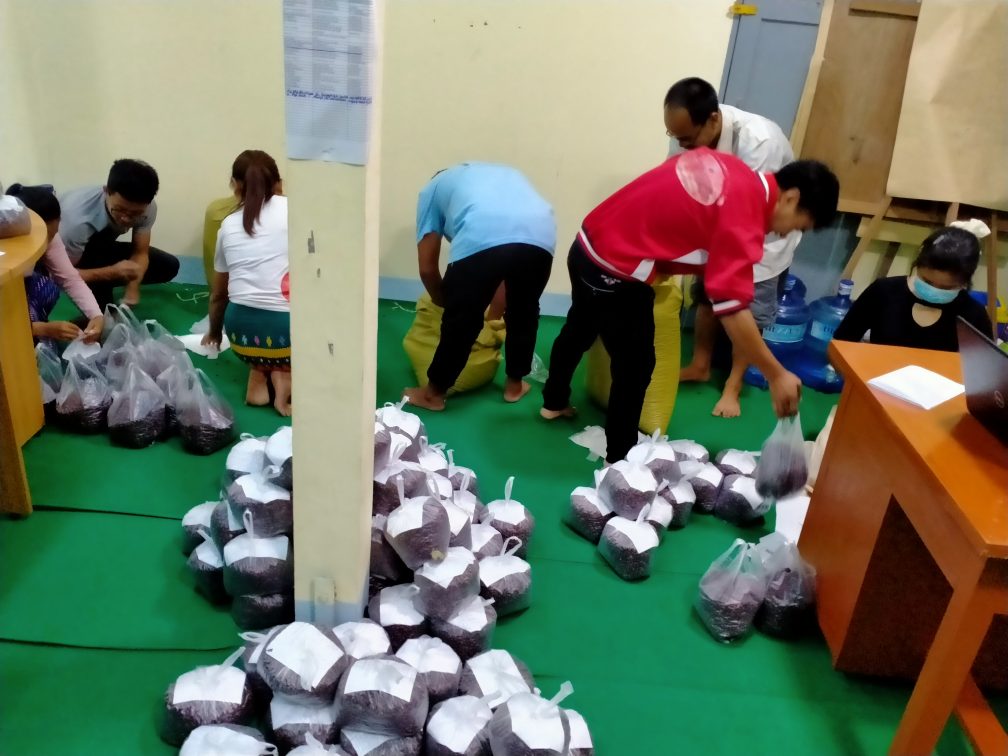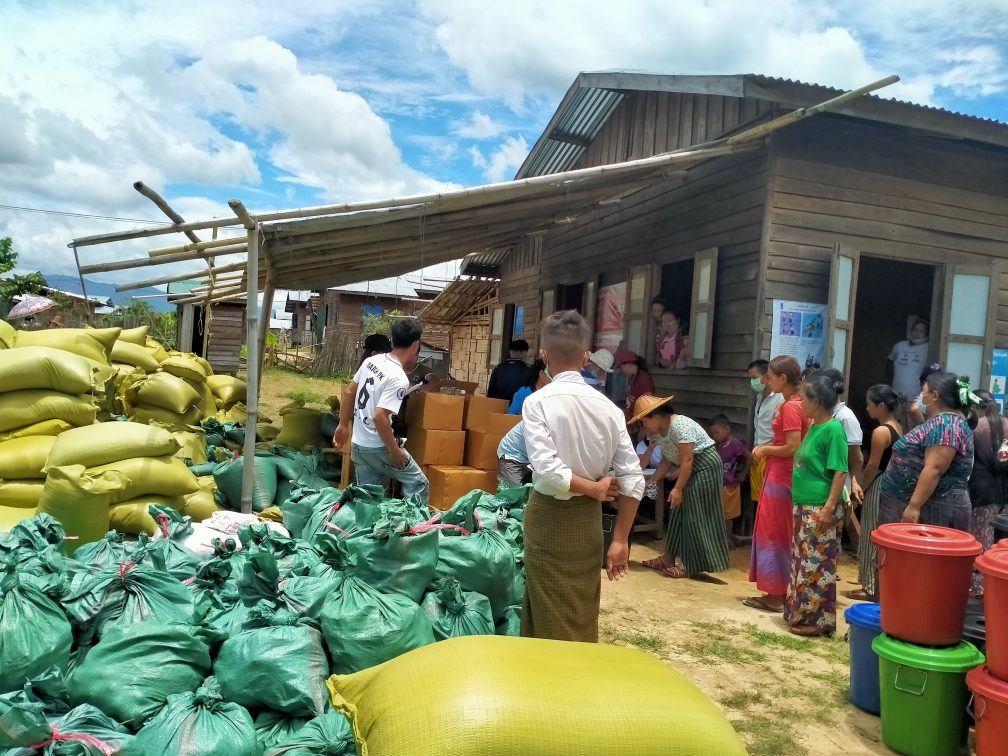Before the Covid-19 restrictions took effect, I received news that I was officially going to be involved in another ministry aside from my work in the Curia office. Fr. Luke Hka Li, (Director of Banmaw Diocesan Commission on Education) informed me that he had asked the bishop to allow me to help him in the education projects of the diocese. I thought it would be a great opportunity for me to work closely with the rural education project supported by the Columbans like the Early Child Care Development (ECCD) and Boarding House Education Development (BHED) programs. This programme was originally under the care of Karuna Banmaw (Caritas), but upon the establishment of the Diocesan Commission on Education (DCE) the diocese decided to transfer it to its office.
I started work in the office in April but we couldn’t do much because of the restrictions in place so I was asked to give inputs to the staff on community development, the project cycle and management, as well as informal English classes to prepare them for the implementation of the education projects in June. But just before June came around, the government announced that it had extended the restriction period. We realized that these extensions could go on and on and there was nothing we could do but wait patiently.
DCE is under the umbrella of the socio-pastoral programme of the Banmaw diocese which works in partnership with other NGOs and organizations to provide better education for under privileged children in the diocese.
During these times of trials we didn’t limit ourselves in the four corners of the office. We were conscious that many people are struggling to make ends meet due to the current Covid situation, so while waiting for the situation to improve we thought about doing some outreach to the most vulnerable communities. We were happy to get an email from EDM (Enfant De Mekong), based in France, who offered to grant a subsidy in response to the pandemic. So we sent a proposal after doing an assessment in Tsam Lum Yang, a relocation site for the IDPs (Internally Displaced People) in Mansi Township.
Unlike other relocation and IDP camps who regularly receive support from different International NGOs, this community received nothing and was all but forgotten. NGOs are reluctant to get involved with them due to the dispute between the Local Government and KIA over the relocation area. During our visit, I got a better understanding of why the place was disputed, because it was so close to where the fighting was taking place. It is in the middle of nowhere and the water supply is limited. It was summer when we visited and it felt like being in the desert. These days when water is one of the most valuable resources to fight the pandemic, I couldn’t imagine how they could possibly manage their day to day life. How could we preach to them about the importance of hand washing when they couldn’t even get access to proper drinking water? I felt like life was so harsh and unfair for these people. Not only water, but access to food was a problem too.
Before the pandemic, family members who worked on the China border could at least send money back to support their family’s needs, but as the border between Myanmar-China had closed they had no other choice than to return home. It added to the worries they were facing that they might be carrying the deadly virus and not be prepared with how to deal with it. The government had quarantine facilities in place for people returning from abroad, including those coming from the China border, but many of them would escape to avoid the quarantine. So we wanted to educate the people about the importance of the quarantine process before returning to their family.
Before the end of May we received news that our proposal was granted and by the second week of June we were able to organize things and distribute the aid to the community. The team in the office worked hard and it felt great to do something small in a limited time. 83 families in Tsam Lun Yang village were overjoyed when we distributed rice and condiments, sanitary hygiene kits, face masks and school supplies for the children. Though I knew it was just a temporary relief, at least it would help them in some small way during these difficult times. Of course, all credit goes to EDM who, despite their main advocacy being providing scholarships to children in Myanmar, did not hesitate to extend their help during these challenging times and granted our proposal.
I have just started my ministry in DCE but I feel like I have been here a long time. I feel proud of the young people I work with in the office for their dedication to learn. I am grateful to the bishop and the priests for their trust in me that I could do what they had asked although I feel so small sometimes knowing my capacity. But I trust that God will not give me more than what I can handle. I have faith and trust in Him who called me here.
Maybe the beauty of being a missionary is being able to identify oneself with the people in mission and to empathize with their situation as a way of seeing their needs. In spite of my insecurities and limitations, I feel blessed for the opportunity of being here and walking alongside the Kachin people who have welcomed me like one of their own.
From working in office administration, teaching and trying to empower people in my ministry, to visiting communities, these are just “snippets of mission”.



